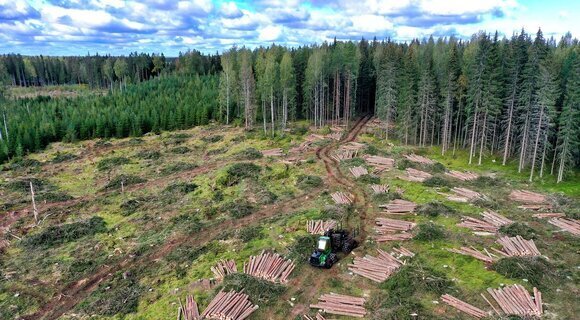Scotland’s forestry sector is raising alarm over potential budget cuts that could severely impact the country’s climate change targets related to new woodland development. Both Woodland Trust Scotland and the industry body, Confor, highlight concerns that a grant scheme designed to incentivize tree planting faces cuts exceeding £32 million or 41%.
Despite the Scottish government missing all but one of the last six annual targets for creating new woodland, crucial for absorbing greenhouse gases, Rural Affairs Secretary Mairi Gougeon acknowledged that next year’s target would not be met. However, she emphasized that Scotland would still outpace the rest of the UK combined in creating new woodland, contributing to the nation’s goal of achieving net-zero carbon emissions by 2045.
The budget constraints, attributed to UK-level decisions, have implications for forestry and conservation projects supported by the Forestry Grant Scheme. Woodland Trust Scotland and Confor reveal that while 14,000 hectares of new woodland have been approved for creation this year, the budget allocation may only support the planting of 9,000 hectares, raising concerns about the sector’s ability to contribute significantly to Scotland’s climate change objectives.
Stuart Goodall, chief executive of Confor, commended the government’s ambition but expressed concern over the diminishing amount of woodland planted in each of the last five years. He warned that the proposed budget cut, exceeding £32 million or 41%, would widen the gap between targets and actual delivery, exacerbating an already challenging situation.
Alastair Seaman, director of the conservation group Woodland Trust Scotland, emphasized the need for urgent investment rather than mere “warm words.” He stressed that creating new woodland and safeguarding existing ones is a straightforward and highly effective response to the climate and nature crises. Seaman criticized the potential cut, stating that undermining the sector’s support in this manner doesn’t align with the current environmental imperatives.
Scotland’s rural affairs secretary, Mairi Gougeon, maintained her commitment to maximizing forestry’s contribution to climate change mitigation. While acknowledging the shortfall in meeting targets, she deemed the creation of 9,000 new hectares of woodland as significant. Gougeon urged a collective focus on creating more woodland and planting trees within the available means, highlighting the record number of approvals for new woodland schemes as a positive indicator for the future.





